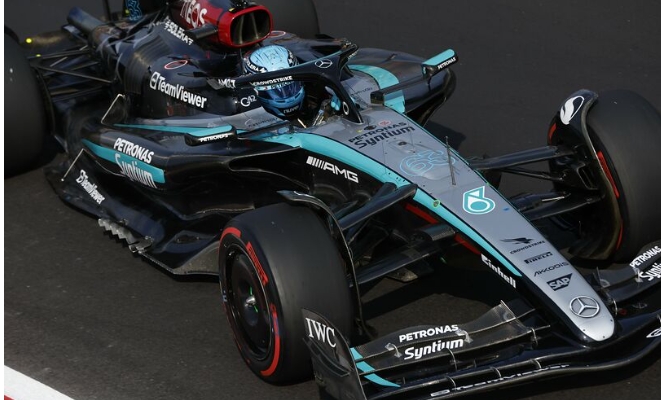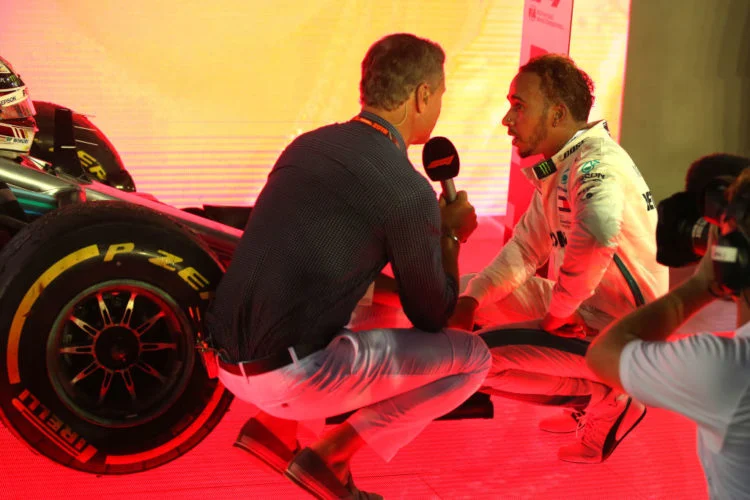Mercedes’ trackside engineering director Andrew Shovlin insists that the excessive heat at the Italian Grand Prix was the main factor that contributed to very high temperatures in the cockpit of both Lewis Hamilton’s and George Russell’s car.
Lewis Hamilton and George Russell complained about unusually high temperatures inside their cars during the Italian Grand Prix weekend several times.
While temperatures were extremely high, with almost no cloud over the Monza track on Friday and Saturday, rival teams seemingly did not have any similar issues over the weekend.
Although the worse-than-usual driving conditions caused discomfort for Russell and Hamilton, it did not lead to a dangerous environment, and neither of them needed to abandon their running.
Speaking via the squad’s regular post-race debrief video, Mercedes’ trackside engineering director Andrew Shovlin said that the Brackley-based outfit will try to find solutions for the overheating issues.
“[The drivers] do a lot of training at temperature, but the fact is once the cockpit is getting hotter than they are, getting rid of that heat is nigh on impossible.
“We are looking at ways that we can improve the situation for our drivers, within the sport as well, looking at means that we can apply, additional equipment to the car at these exceptional races that will keep the drivers a bit cooler.
“But as I said, it is a very challenging environment and that is why they do so much training.”
Pushed on to reveal the cause of the overheating issues, Shovlin said that the main contributing factor was the extreme heat that featured all three days of the Italian Grand Prix.
“The most significant cause was in Monza it was extremely hot. The seat and the car is always running pretty hot and there’s a lot of heat generated by the power unit that you’re trying to dissipate.
“You’ve also got a lot of electronic boxes and those are working quite hard and they generate their own temperature so you’re trying to lose that out of the cockpit.”
The British engineer has revealed that the long straights of the Monza track means that more friction is generated by the plank of the car. The extra friction also contributed to the cockpit being warmer than usual.
“There are a few places where the plank’s hitting the road and that in itself will generate temperature through friction, and that will start to conduct up through the floor of the car and into the driver’s seat,” Shovlin said.
“With the ambient temperature at 34 – nothing can be below that – you’ve also got numerous heat sources and it just pushes it up so the cockpit starts to get considerably above a driver’s body temperature, it’s then very hard for them to cool down and the heat just builds and builds.
“Now they’re used to driving in these very difficult environments, it’s just that when you get the very hottest races, it’s a bit extreme
and it really does test them.”










